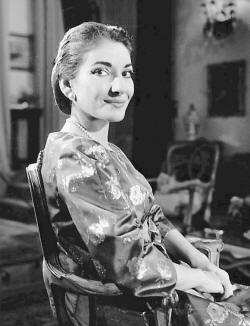

Queer Places:
Patision 61, Athina 112 57, Greece
Via Caio Valerio Catullo, 7, 25019 Sirmione BS
36 Av. Georges Mandel, 75116 Paris, France
Cimetière du Père Lachaise
Paris, City of Paris, Île-de-France, France
 Maria Callas[a] Commendatore OMRI[1] (born Sophie Cecilia Kalos; December 2, 1923 – September 16, 1977) was an American-born Greek soprano[2] who was one of the most renowned and influential opera singers of the 20th century. Many critics praised her bel canto technique, wide-ranging voice and dramatic interpretations. Her repertoire ranged from classical opera seria to the bel canto operas of Donizetti, Bellini and Rossini and, further, to the works of Verdi and Puccini; and, in her early career, to the music dramas of Wagner. Her musical and dramatic talents led to her being hailed as La Divina ("the Divine one").
Maria Callas[a] Commendatore OMRI[1] (born Sophie Cecilia Kalos; December 2, 1923 – September 16, 1977) was an American-born Greek soprano[2] who was one of the most renowned and influential opera singers of the 20th century. Many critics praised her bel canto technique, wide-ranging voice and dramatic interpretations. Her repertoire ranged from classical opera seria to the bel canto operas of Donizetti, Bellini and Rossini and, further, to the works of Verdi and Puccini; and, in her early career, to the music dramas of Wagner. Her musical and dramatic talents led to her being hailed as La Divina ("the Divine one").
Born in Manhattan, New York City, to Greek immigrant parents, she was raised by an overbearing mother who had wanted a son. Maria received her musical education in Greece at age 13 and later established her career in Italy. Forced to deal with the exigencies of 1940s wartime poverty and with near-sightedness that left her nearly blind onstage, she endured struggles and scandal over the course of her career. She notably underwent a mid-career weight loss, which might have contributed to her vocal decline and the premature end of her career. The press exulted in publicizing Callas's temperamental behavior, her supposed rivalry with Renata Tebaldi and her love affair with Greek shipping tycoon Aristotle Onassis. Although her dramatic life and personal tragedy have often overshadowed Callas the artist in the popular press, her artistic achievements were such that Leonard Bernstein called her "the Bible of opera"[3] and her influence so enduring that, in 2006, Opera News wrote of her: "Nearly thirty years after her death, she's still the definition of the diva as artist—and still one of classical music's best-selling vocalists."[4]
In 1969, the Italian director Pier Paolo Pasolini cast Callas in her only non-operatic acting role, as the mythological character of Medea. The production was grueling and Callas reportedly fainted after a day of strenuous running back and forth on a mudflat in the sun.
Callas spent her last years living largely in isolation in Paris and died aged 53 on 16 September 1977 of a heart attack. She later was cremated at the Père Lachaise Cemetery and her ashes were placed in the columbarium there. After being stolen and later recovered, in the spring of 1979 they were scattered over the Aegean Sea, off the coast of Greece, according to her wish.
My published books: